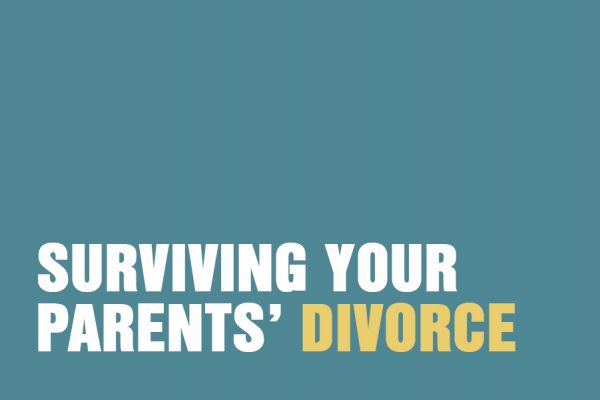Life after divorce can be a challenge. Especially when there are children involved, or it turns into a difficult divorce. Although divorce is common nowadays – The Office for National Statistics reported in 2011 that 42% of marriages in the UK ended in divorce – many people face difficulties in the weeks and months following a separation. Challenging or painful emotions like depression, anger or feelings of rejection can arise.
But a divorce doesn’t need to spell the end of happiness, and the end of a marriage isn’t the end of the world. True, it’s a big life transition, but there are ways you can help yourself to move on. At The Awareness Centre, divorce and separation support is a part of our family therapy programme, and we’ve got experience in supporting people through this difficult time.
In this post we’ll take a look at the ways the divorce process can impact you. Then we’ll walk you through six key strategies to help improve your wellbeing and get you back on your feet.
Dealing With the Divorce Process
“Divorce” is the word no one wants to hear when they enter a marriage, but it is something that can happen, and it’s important to understand the process. Firstly, it is possible to get divorced without getting solicitors involved, if you and your ex-partner can agree on the divorce. If not, it can take more time and more money. Once the divorce is agreed, it’ll typically take around 6 months to legally finalise the process, and getting a document called a ‘decree absolute’ is the final step. At that stage you can move on to think about finances, property, and children, all of which will be dealt with separately.
The divorce procedure can be an extremely distressing and upsetting time, and it’s little wonder that the emotional impact can be so profound, for either party and also for children. Many people who go through a divorce come out of it experiencing something of an identity crisis; your life has undergone significant upheaval, and it can be a challenge to define yourself in new terms. All too often, this may lead to substance or alcohol abuse, or other potentially damaging behaviours, as a way of trying to manage or suppress unwanted/difficult emotions.
It’s common for people to experience bouts of depression in their life after a divorce, mixed with complex feelings of shame, guilt, or anxiety. Your work life may be damaged, your lifestyle interrupted, your social connections impacted, and even fundamental parts of your personality or your daily habits can suffer as a result of a divorce. Read on to see our six professionally-accredited steps for dealing with the difficult impact of a divorce.
Moving Forward with Your New Life
1. Allow yourself to feel
The emotional weight of divorce can be immense, and it’s something that you’ll need time and space to navigate. In many ways, mourning a marriage is like mourning the loss of a loved one; you’ll have a lot of memories and feelings to process, and you need to allow yourself the time to grieve.
Try not to punish yourself for feeling sad or upset – it’s not weak – it’s natural to feel this way. Be kind to yourself. If you take the time to feel those emotions and understand that they don’t define you, with time they will pass. You’ll come to accept that the divorce has happened and be able to let it go. In therapeutic terms this is known as ‘emotional intelligence’ or ‘emotional agility’, and you’ll need a large store of it to navigate divorce.
2. Accept the changes
Just like marriage, divorce is a major life event, and it’ll set into motion some dramatic changes in your daily life. There’s a good chance you won’t be in the same house as your children, for example. It can be a hard but crucial step to accept these changes as they come, and try to embrace them as a new opportunity.
Instead of fixating on the idea that your children have separated parents, focus on becoming a great co-parent. You and your ex-partner are still in a fantastic position to be positive role models. Similarly, understand and accept that you may have to share some friends, or even lose some as part of the change, so be open to that, and also to making some new friends, too. Throughout our lives, things come to us and in time drift away, so try to see the divorce as the start of a new beginning.
3. Cultivate healthy habits
Try to fill your life with positive things. Often, the more time you have to ruminate, the worse you’ll feel. Remember your passions, the hobbies and interests you’ve always loved, and keep them with you as you move forward, as this will have a hugely positive effect on your mental health. You could incorporate self-care practices into your lifestyle, like yoga or meditation, as you create a healthy routine.
Or what about that stuff you’ve always wanted to do, but never had the time? The time may have just arrived. Have you always wanted to learn the piano, start going to the gym, or speak French? Set some positive goals and see where they take you – you may surprise yourself.
4. Move on, but take it slow
A divorce can call into question your sense of self-worth, and often there’s a temptation to run headlong into a brand new relationship. A fling or new partner can be exciting and rewarding, and those things will come in time, so there’s no rush. The first step is to take a step back from dating. You need to give yourself the time to grieve, move on, and focus on yourself.
When the time is right, the right people will enter your life, so focus on getting yourself back on track before you think about bringing other people in. When you do decide to start dating, online dating apps can be a good half-step to putting yourself out there again, but it’s important to always be aware of the risks it can pose and flag any signs of potential danger.
5. Break negative cycles
Humans are creatures of habit, and in times of uncertainty we fall back on the things we know. In the months or even years leading up to a divorce, you and your ex-partner may have developed a damaging and toxic pattern of conflict. Time spent making petty comments and engineering arguments don’t belong in your life anymore – let go of all that stuff. It’s painful, self-destructive and ultimately pointless.
If you find yourself or your ex-partner slipping into those old negative cycles in your life after divorce, cut it off immediately. Walk away, take a deep breath, remove yourself from negative situations, refuse to participate. Remember, there was a reason you decided to get divorced. There’s no sense in dragging out the bad feeling.
6. Don’t go it alone
As you go about rebuilding your life, it’s OK to lean on the support network around you. That’s what it’s there for. Your family, friends and loved ones are there for you, and they can provide emotional support when you’re having a darker moment. Reach out and talk to them. And your support network doesn’t end there: depending on the situation, books, common-interest groups, co-workers or even an old acquaintance can be there to tell you what you need to hear.
Sometimes, you may need help from a professional to help you manage the difficult feelings, and that’s OK, too. If you find that the depression isn’t going away in time, or you’re losing control of your actions, seek medical help. Online, on the phone or in a clinic, book a consultation to talk things over if you need to.






